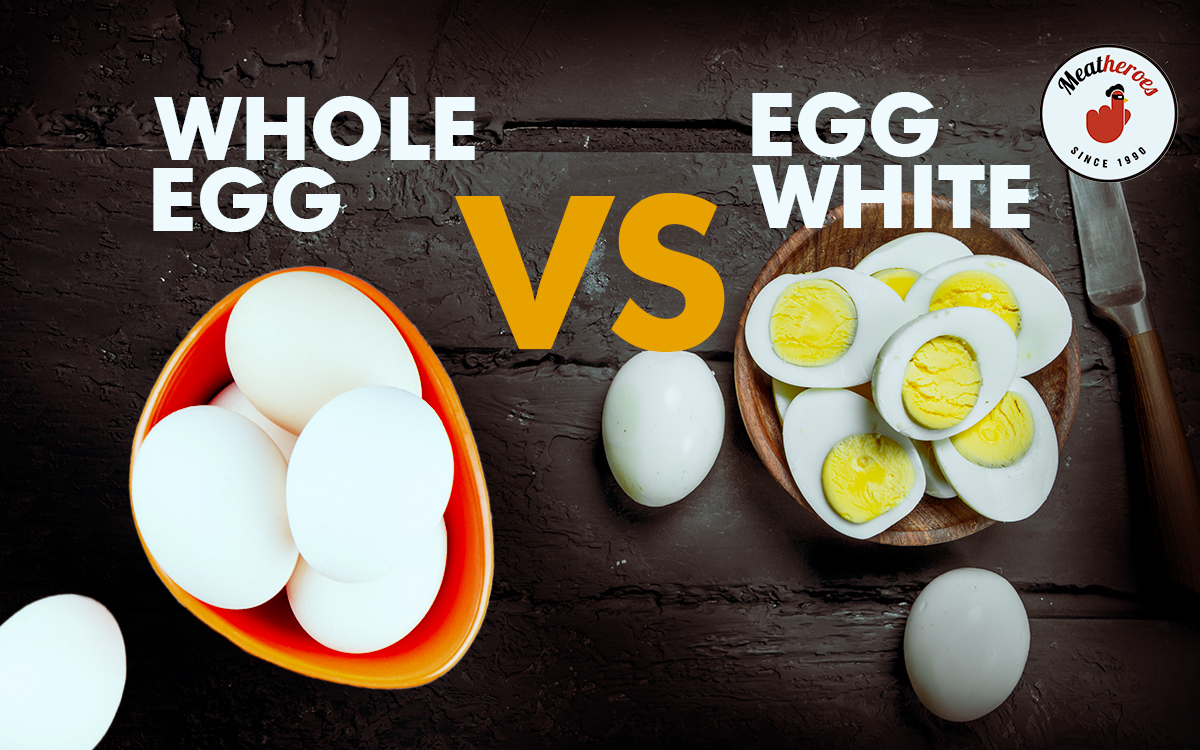
You might agree that most of us are not living a healthy lifestyle. We are caught up in our busy routine and left with little time to devote to our health. Hectic days and a sedentary way of living have taken over and are drifting us away from getting involved in regular exercise. Although we know that we are inviting health issues, we are still refraining from breaking away from unhealthy life choices. So, before it’s too late, let us modify our lifestyle and start eating nourishing meals alongside adding some amount of activity in our daily routine.
Eggs are a nutrient-rich food item you should include in your daily diet. They are versatile and can be cooked as per your taste. You can have them boiled, poached, scrambled or as an omelette. But people often get stuck on egg white vs whole egg. You might as well! Both have their nutritious value and benefits that you should know of. Then it will be easy to decide the one you should incorporate in your diet.
Egg White vs. Whole Egg: What is Meant For You?
Egg White
Egg white is a rich source of protein and a very good partner in your weight loss journey. A single egg white contains only 17 calories and 3.6g protein. It contains no cholesterol and fat, making it ideal for people with high-cholesterol issues. It is a perfect food to recover from muscle wear and tear after exercise and maintain lean muscle mass. But the downside is that you are missing out on some essential nutrients like vitamins and minerals if you are consuming only egg whites. If you are trying to get rid of extra body weight and build lean muscle mass by consuming only egg whites, it is highly likely that you might need supplements to fulfil the lack of nutrients.
Whole Egg
Whole Egg is a nutrition-packed diet containing not just protein but also vitamins and minerals. One whole egg contains 90 calories, 6 grams of protein, 5 grams of fat, and 186 mg of cholesterol. It can make part of a balanced diet for people who prefer having a healthy meal routinely. It is a good source of antioxidants and a complete amino acid profile including lutein and zeaxanthin, which support brain functioning and eye health. Additionally, it also contains vitamin B6, vitamin B12, vitamin D, and phosphorus which helps build strong bones and overall health.
Egg White Vs. whole egg is not a debatable topic anymore given that this highlighted nutritional differences between them. It totally depends on your health requirements whether you want to consume egg white or whole egg.


 Quick & Easy Creamy Herb Chicken Recipe
Quick & Easy Creamy Herb Chicken Recipe  Good Protein-Rich Foods for a Healthy Lifestyle
Good Protein-Rich Foods for a Healthy Lifestyle  Why is the trend shifting from chicken shops to online chicken delivery?
Why is the trend shifting from chicken shops to online chicken delivery?
Leave a Reply